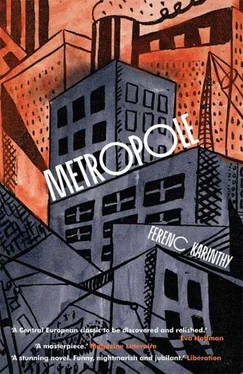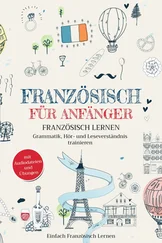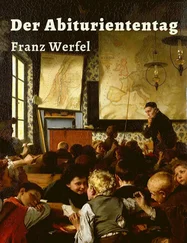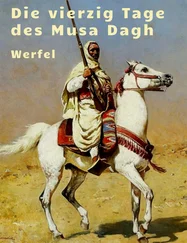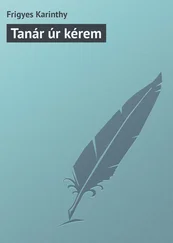‘Goroge tutun epetetye! Wiripij.’
Budai stood before the ink-stained desk. What else was he to do? The officer was still breathing heavily, staring at him, his small slant eyes as sleepy and as bored as before, his eyelids closing now and then. He raised both hands to Budai, spread out his fingers, took them down then raised them again. Budai was unable to guess what he wanted but then the telephone started ringing so the officer picked up the receiver and replied slowly and deliberately, searching out some papers while scratching the back of his thick, veiny neck. He took some time to work his way through them, then looked up at Budai as if to say, Good heavens, what’s going on, are you still here? Nevertheless he continued sitting there for some time, sluggish and obese before reaching for a scrap of paper and writing down the number 20. He gave the sheet to Budai. Budai did not appear to understand so the man drew out his own wallet and produced two ten-unit notes of currency, pushing them in front of him. It seemed unlikely that he was being offered money. Budai suddenly guessed what was expected of him. He was being given a fine: that must have been what those two lots of hands and fingers meant.
Pleased to have finally understood, he had no wish to argue, fearing that if he complained too much it might end not just in a fine but in more time in the cell and he didn’t want that. So he fished in his pockets for two tens and put them down on the green tablecloth: he didn’t have much money left. The officer did not give him a receipt, instead he was forced to write his name in a large book, the officer pointing out where with his fingers. The man’s nails were dirty.
And with that the matter was more or less over. Budai had one or two more goes trying to explain why he had had himself brought in but hardly anyone was listening now. The black warder had disappeared and the fat officer was on the phone again, having taken a blue saucepan with some cold stew in it from one of the drawers. He sniffed at it, then set about rapidly consuming it. He made a horrible slurping sound and the sauce kept dribbling from the spoon so his moustache was completely covered and he had to wipe it again with his handkerchief. Budai was afraid that if he spoke up too loudly he’d get another box on the ear. In any case, the stale, muggy heat seemed to fill every corner of the enormous building and he was finding it ever harder to bear. All in all he was quite relieved when they led him out and he could breathe easily for the first time, free at last.
He found the nearest metro entrance the same way he had done before, that is by following the main drift of the crowd. Once underground he consulted the map and located the station he was currently at, it being marked with a red circle at the top right hand corner, and quickly found his way back to the station nearest the hotel… Arriving, he saw the same skyscraper under construction with a lot of men at work on it and great loads on pulleys being conveyed up and down. Out of sheer curiosity he counted the number of floors. There were two more now, making sixty-seven in all.
He took some tea in the self-service buffet and was already sipping at his oversweet drink when he realised that he had picked up his breakfast without noticing he had had to queue for everything. His heart started thumping in his chest. He had been convinced it was the last thing he should get used to, for once he accepted, however unconsciously, the necessity of these queues it meant he had given up, surrendered the one hope that remained, the hope that he was different from the natives, a visitor, someone who did not belong here, someone who, by the same token, could not be detained.
He hurried back into the hotel. This time he no longer thought or expected but knew for certain that there would be something waiting for him. He was almost happy to see the fur-collared, blinking automaton at the door, to have him salute and push the door open, though the little multilingual notice he had put up before his adventure with the police seemed to have disappeared.
When he took his place in the queue for his key at the desk — once again there was a new clerk on duty, a smooth-faced, blond-haired young man, practically a child — he could see even at a distance that there was a roll of paper in box 921 though whether it was a letter or a folded note such as those on which hotels use to write messages was not clear. He was seized by such excitement that his fingers began to dance on the counter as the queue slowly moved forward. Never before had he found the wait for the desk-clerk so unbearably long. Could it be a reply to the message he had sent the management? To his multilingual notice? Or had someone rung him, the airline perhaps looking to find him, someone seeking him from home or possibly Helsinki, though he hadn’t managed to arouse anyone’s interest in town and not even the police could be bothered to find out his name? Suddenly his eyes filled with tears and he was unable to contain them. His chest and Adam’s apple started to heave so violently he feared drawing attention to himself as he struggled to control his emotion. Meanwhile the queue moved on one place.
At last he got to the young clerk and showed him his room number that he kept safely in his pocket. The clerk bowed politely, took down both the key to 921 and the note or whatever it was from the pigeon-hole. The sheet was folded into four. Budai spread it out on the counter as the clerk mumbled a few incomprehensible words: it looked like a kind of form with printed text and some numbers in ink. With quick, practised movements the clerk set up and entered information on his hand-held computer, presumably checking the figures, then wrote down the sum with his ball-point pen, twice underlining the total, scrawled something beneath it in large letters, and slickly rattling off some well-learned text, handed it over to Budai. It was clear by now that this was a bill. He calculated that he had been at the hotel precisely a week since arriving last Friday. Guests, it seemed, were required to pay by the week.
It was the amount that was the most frightening: the bottom line read 35.80. If he subtracted that from what money remained in his pocket he would have practically nothing left. It was true that since he had cashed his cheque he had been spending rather freely as if it were toy money and it had never occurred to him that he might run out… The clerk pointed to a neighbouring window, presumably where he had to pay, at the very counter where Budai had collected eighteen freshly minted ten-unit notes. With heavy heart he now returned four of these — that’s after a good half-hour of queuing, of course — and realised with bitter irony that he had gone through much of the value of the cheque without even learning the name of the currency.
He stuffed the bill in his pocket and waited for the lift while counting up again how much he had left. There were three tens and a few smaller notes, ones and twos as far as he could make out from the faint screwed-up bits of paper, plus some small change. It was dangerously, horrifyingly little: he hardly dared think what might happen once he had spent it. He just had to stay here. What other choice had he? He counted feverishly, adding and multiplying, calculating how long he could make it last if he carried on spending at the current rate, or rather what was the best way of rationing it — he had to eat, after all. Or should he give up travelling? Should he just sit in his room and wait for relief to arrive?
His mind worked overtime but he was running on empty: then, suddenly, just as the lift was arriving at the ninth, he was full of ideas, each better than the last, however late. This one should work! Here was another he could try! That was if he did not have to watch every last penny… He could, for example, show someone a ten-piece note in one hand and a notebook sketch of an aeroplane in the other, and that would make it clear that he was seeking the latter, that is to say either the airport or the airline office. The trick was to show the money but to withdraw it while brandishing the drawing so the other person understood that he would only pay if he was actually conducted to the place. Or he might tempt one of the poorer-dressed people on the metro, the way one might entice an animal with food, by rattling his change while making train noises to imply that he wished to be taken to a railway station. He could try it on one of the hotel employees, using much the same ruse, persuading them to get him a taxi or some other car that would be certain to carry him wherever he wanted, for a fee of course, he being pretty certain he could settle with the driver. All these and other schemes flashed before him, but behind them all remained the sense of chill horror: what would happen if none of these worked and his money ran out; whom should he turn to, whose help could he count on? Going by his experience of local people so far he could die of starvation as far as they were concerned.
Читать дальше
